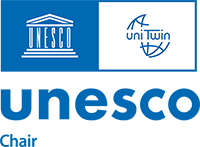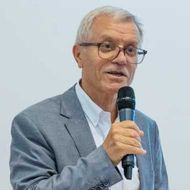- A
- A
- A
- ABC
- ABC
- ABC
- А
- А
- А
- А
- А
- HSE University
- UNESCO Chair on Future Studies
- News
- ‘Artificial Intelligence Has Become the Lifeblood of the Global Economy’
-
-
Education
-
Science
11 Myasnitskaya St., Moscow
+7 (495) 621-28-73
issek@hse.ru
Meissner D., Zhou Y., Fischer B. et al.
Technological Forecasting and Social Change. 2022. Vol. 178.
Abdrakhmanova G., Vasilkovsky S., Vishnevskiy K. et al.
M.: National Research University Higher School of Economics, 2022.
Saritas O., Burmaoglu S., Ozdemir D.
Futures. 2022. Vol. 137.
Sokolov A., Shashnov S. A., Kotsemir M. N.
In bk.: BRICS Comprehensive Innovation Competitiveness Report 2020. Scientific and technical documentation press, 2021. P. 36-98.

‘Artificial Intelligence Has Become the Lifeblood of the Global Economy’

Experts from HSE University took part in the BRICS Academic Forum (FABRICS) held in the capital of Brazil this year. The main theme of the event was to discuss cooperation among countries in the Global South amid geopolitical turbulence and rapid technological change. Academics and experts from BRICS member states and partner nations explored topics such as global healthcare, AI technologies, trade, climate change, and reform of the multilateral global security and governance architecture.
The Academic Forum, held on June 25 and 26, 2025, served as a platform for open dialogue and the development of joint initiatives aimed at strengthening the role of the BRICS countries on the global stage.
The forum opened with a welcoming address from Victoria Panova, Vice Rector of HSE University, Head of the BRICS Expert Council–Russia, and Russia’s Sherpa in the W20. She emphasised that over the past 17 years, the Academic Forum has become a vital platform for dialogue, problem-solving, and collaborative intellectual efforts.

Victoria Panova
‘We are living in an era where questions of peace and sustainability are becoming decisive. The BRICS countries have already demonstrated their capacity for coordinated action, including in response to recent international crises. As an academic community, we are not only obliged to analyse what is happening, we must also articulate the principles on which a new model of global cooperation can be built,’ noted the HSE Vice Rector.
Victoria Panova cited forecasts suggesting that by 2030, the Global South’s share of the world economy will exceed 57%, and trade between countries in the region may reach 14 trillion US dollars. She also presented results from the first comprehensive analysis of how the BRICS countries are fulfilling their own commitments, conducted in 2024 with the participation of the Council of BRICS Expert Centres. Victoria Panova announced plans to make this type of research a regular practice, alongside the creation of a BRICS digital document repository—a unique resource for scholars and practitioners that will bring together all of the grouping’s key materials since its inception.
At a session on AI governance, Konstantin Vishnevskiy, Director of the Centre for Strategic Analysis and Big Data at the HSE Institute for Statistical Studies and Economics of Knowledge, and an expert with the BRICS Expert Council–Russia, delivered a presentation. He noted that ‘artificial intelligence has become the lifeblood of the global economy,’ with the global AI market approaching 640 billion US dollars and continuing to grow rapidly.

Konstantin Vishnevskiy
‘Almost every second AI solution is being developed in the BRICS countries or for their markets. This highlights the bloc’s immense technological potential. However, it is not only about competing in the global race—we must also set the principles upon which global AI governance will be built,’ he said. ‘We must ensure that technological development is ethical, fair, and inclusive. AI must not become the cause of new digital inequality—on the contrary, it can and should be a tool for levelling the playing field, especially for countries in the Global South.’
The expert also spoke about the upcoming launch of an international AI foresight initiative in 2025, which was commissioned by the President of Russia. HSE University is serving as the methodological lead for this project, coordinating the joint efforts of researchers, public institutions, and businesses to define priorities for both fundamental and applied research in the field.

Igor Makarov, Head of the School of World Economy, Director of the Laboratory for Economics of Climate Change at the HSE Faculty of World Economy and International Affairs, and expert of the BRICS Expert Council–Russia, spoke during the session on climate change, emphasising the need for BRICS to formulate its own agenda in the run-up to the COP-30 climate conference in Belém. He highlighted the fact that current green transition models largely reflect the interests of developed countries and fail to take into account the realities of developing economies.

‘There is a lot of discussion today about the ‘just transition,’ yet universal solutions continue to be imposed without considering the actual circumstances in Global South countries. BRICS can offer an alternative approach based on technological neutrality, balancing mitigation and adaptation efforts, and respecting national specificities. It is crucial not to merely repeat long-term targets, but to move towards shaping a new consensus that reflects the genuine interests of the majority of countries worldwide,’ Igor Makarov stated.
The speaker suggested launching a multilevel discussion on a new sustainable development agenda with the BRICS expert community as the foundation for a unified position at global forums, including the UN system.
As a result of the two-day session, the BRICS Academic Forum in Brasilia has developed expert recommendations, which will be forwarded through the Sherpa channels to the leaders of the BRICS countries before the upcoming summit. These recommendations cover a range of key areas, including the development of a fair global governance architecture, coordination on climate change initiatives, digital transformation, and strengthening the institutional capacity of BRICS.
- About
- About
- Key Figures & Facts
- Sustainability at HSE University
- Faculties & Departments
- International Partnerships
- Faculty & Staff
- HSE Buildings
- Public Enquiries
- Studies
- Admissions
- Programme Catalogue
- Undergraduate
- Graduate
- Exchange Programmes
- Summer Schools
- Semester in Moscow
- Business Internship
-
https://elearning.hse.ru/en/mooc/
Massive Open Online Courses
-
https://www.hse.ru/en/visual/
HSE Site for the Visually Impaired
-
http://5top100.com/
Russian Academic Excellence Project 5-100
- © HSE University 1993–2025 Contacts Copyright Privacy Policy Site Map
- Edit

